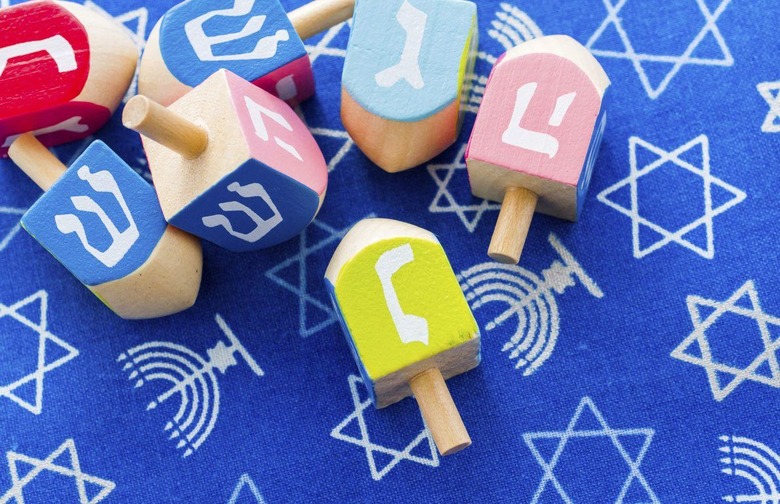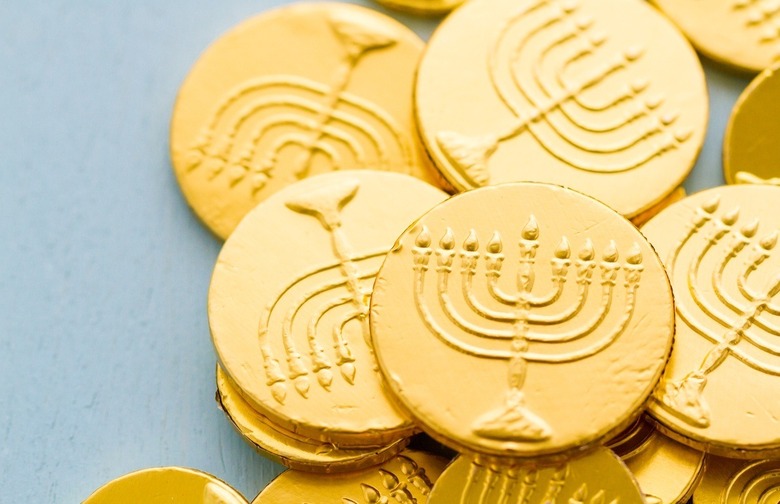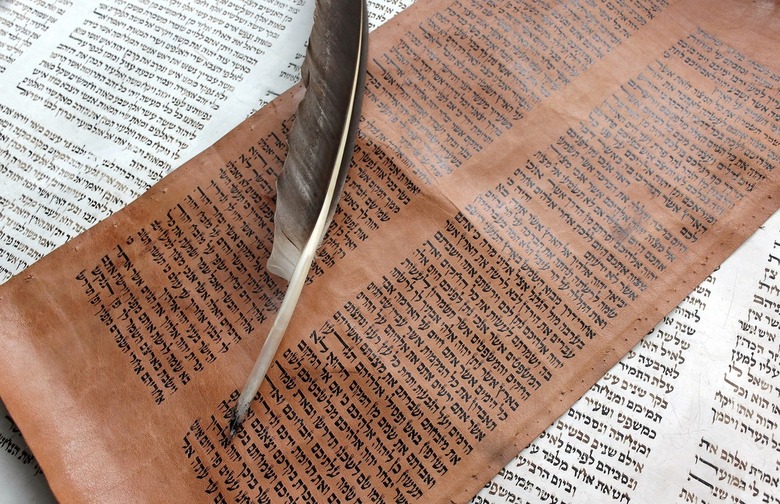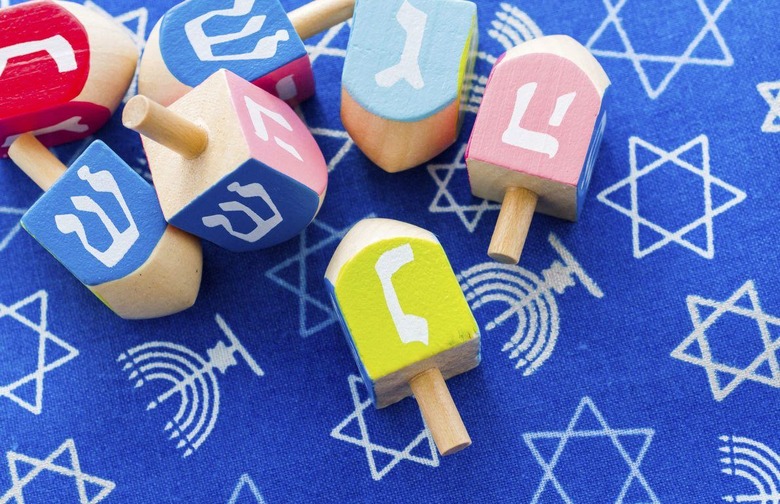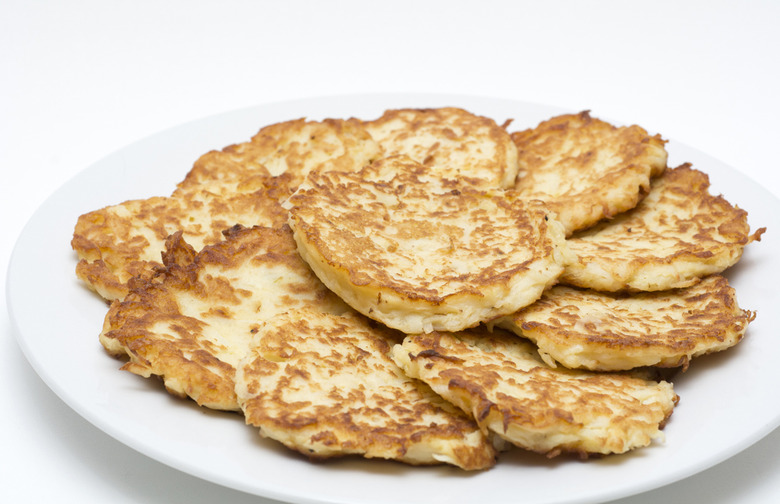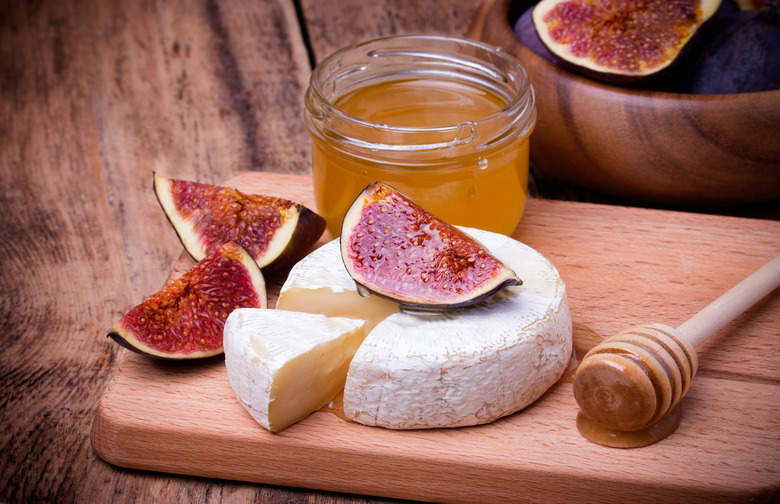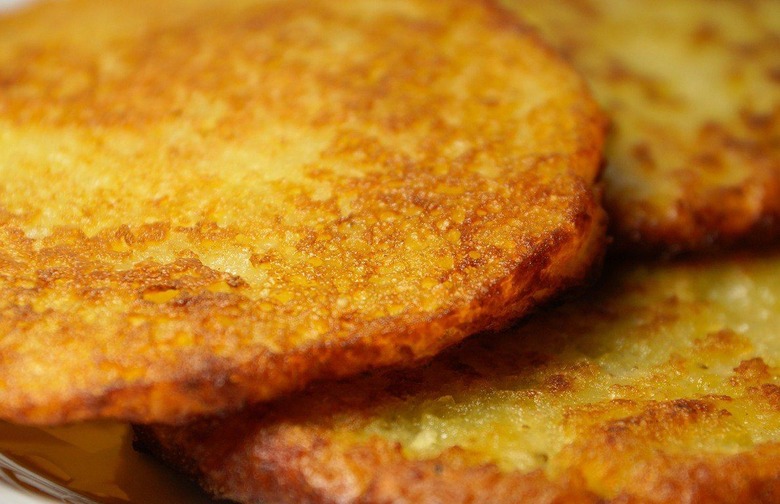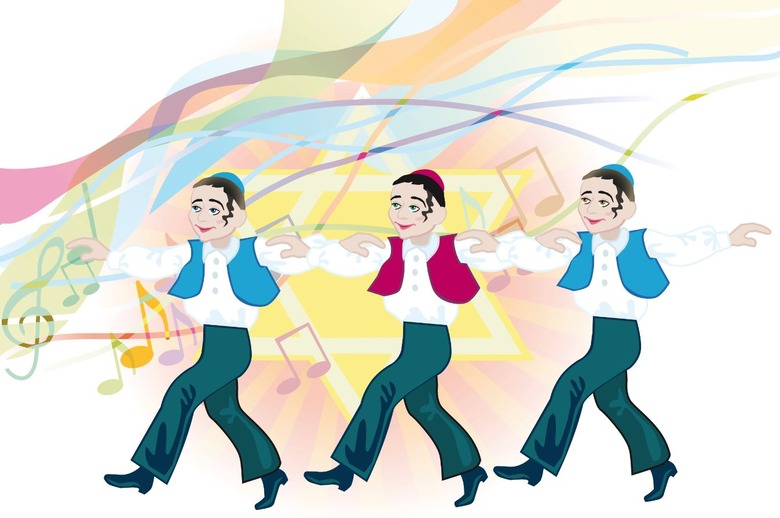10 Things You Didn't Know About Hanukkah
Hanukkah is one of the most popular (and fun) Jewish holidays, and you'd be hard-pressed to find a Jewish person who doesn't observe it in one way or another. Because seriously, what's not to love? You light the menorah, sing some songs, spin a dreidel, eat potato pancakes, and open presents. But even if you can't wait to decorate your annual Hanukkah bush, we bet that there's a lot you didn't know about this beloved holiday.
Those Chocolate Coins Evolved From Tips for Teachers
There's a long tradition of giving children coins (called gelt) during Hanukkah; in fact, originally it was the only gift children received; it dates back to an Eastern European custom of children giving their teachers a little money this time of year as a "thank you" tip. As for modern-day chocolate gelt, that was an American development, first produced by Loft's in the 1920s.
The Story of Hanukkah is in the Catholic Bible, But Not the Hebrew One
The story of Hanukkah, which took place in 165 BC, is the only Jewish holiday that isn't included in the Tanakh, or the Hebrew Bible. There are a couple theories as to why the first-century rabbis who assembled the canonical collection left it out, including its relative recency and a desire to not ruffle any feathers with the Romans. So oddly enough, the story is in the Catholic Bible, but not the Hebrew one.
The Game of Dreidel was Inspired by a British Game
The game of dreidel is played by spinning a top with a letter on each of its four sides (the initials for "A great miracle happened there," referring to the oil burning for eight days). All players start with the same amount of money, but lose it or win more based on which letter they land on. It's almost identical to a German game played around Christmastime, which in turn was inspired by a British top called a teetotum.
Oily Foods are Hanukkah’s Primary Culinary Tradition
The connection between deep-fried foods like potato pancakes and jelly doughnuts and Hanukkah is a pretty straightforward one: they're eaten to acknowledge the oil burning for eight days.
Cheese is a Lesser-Known Hanukkah Culinary Tradition
The story behind cheese also being a traditional Hanukkah food (albeit a lesser-known one) is slightly more macabre: According to the story of Hanukkah told in the Book of Judith, a beautiful Jewish widow named Judith gained the trust of the enemy Assyrian general, Holofernes, and plied him with cheese and wine until he passed out drunk. She then beheaded him while he slept and brought his head back to the Jewish camp, emboldening the Jewish army and causing the Assyrians to flee, saving Israel.
Latkes Aren’t Commonly Eaten in Israel
While you'll find plenty of jelly doughnuts in Israel around Hanukkah, you'll surprisingly find very little in the way of potato pancakes. According to The JC, there are a couple rather complicated reasons for this: One, latkes were traditionally a homemade food while jelly doughnuts were easily purchased at markets (and the labor-intensive process of making latkes caused many to stop making them at home by the 1980s). Two, in Eastern Europe, where latkes remain popular, they were fried in animal fat, which was in surplus around this time of year because people killed birds they didn't want to feed through the winter. There was no surplus of animal fat in Israel, however, but there was plenty of oil, which was perfect for frying doughnuts.
It Actually Falls on the Same Day Every Year – In the Hebrew Calendar
According to the Hebrew calendar, Hanukkah falls on the 25th day of the month of Kislev. But because the Hebrew calendar doesn't sync up with the Gregorian one (that's the one we use), it can fall anywhere from late November to late December (in 2013, it coincided with Thanksgiving).
There’s No Correct Way to Spell It
There's only one right way to spell Hanukkah: חֲנֻכָּה. Common transliterations include Hanukah, Chanukah, Chanuka, and Chanucah.
It’s a Major Holiday Because of Christmas
Up until the late 1800s, Hanukkah was actually a relatively minor Jewish holiday, not nearly as big as, say, Passover or Rosh Hashanah. It became as popular as it is today for two reasons, both having to do with Christmas: One, to prevent Jews from getting too wrapped up in the Christmas spirit, and two, to give Jewish children something to celebrate, so they wouldn't be too envious of their Christian friends.
There Are Actually Plenty of Hanukkah Songs
You've probably heard that there are no Hanukkah songs (usually in the same breath as there being hundreds of Christmas songs), but in reality there are more songs for Hanukkah than any other Jewish holiday; they're just not exactly something you'll hear on the Christmas carol radio station. Some of the best known Hanukkah songs include "Rock of Ages" (not to be confused with the eighteenth-century Christian hymn of the same name), "Dreidel, Dreidel, Dreidel," "Oh Hanukkah," and, of course, Adam Sandler's "The Hanukkah Song." There are some great Hanukkah TV specials as well.
